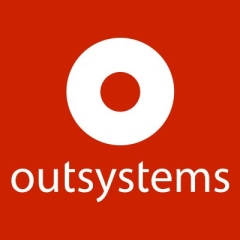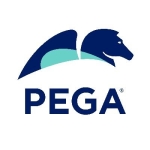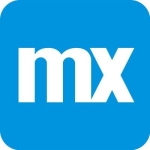What is our primary use case?
It is kind of used for reactive and web applications. We're also working on the mobile applications as well. I use it in a banking environment.
I've been onboarded there and then I'm just doing the activities for both internet banking as well as mobile banking, handling both servers as well as the front end.
Currently, this banking application can consist of both mobile as well as internet banking. We have it for eight different countries. For mobile, we have eight different applications, and for internet banking, it is a single application, however, it'll support eight entities in eight countries including Bahrain, the UK, Iraq, et cetera.
What is most valuable?
Normally we use it in a banking setup. Usually, transfer payment and then the benefits pay gateway, are those kinds of integrations we are doing currently for mobile. The onboarding process we do, the login for that process, et cetera, offer good features.
We have one feature called multiple payments where we're able to select multiple beneficiaries and we're able to create ad hoc beneficiaries. Ad hoc beneficiaries mean there's no need to add the benefits directly. We can enter the beneficiary upon the number and we can do the payment. We can add multiple beneficiaries in a single go and then we will do the validation.
We have a back office application as well where we can configure based upon the user as well as based upon the segment. We can configure per day.
We're able to do transformations. We can do the validation before calling the API. Once validation is done, we will show the set of validation. Either it can be the OTP validation or it can be a token validation. Once that is done, we can call the final API, which calls the code banking system for doing the payments.
What needs improvement?
We've acquired a new bank and would like to integrate e-services into the offering. We'd like to be able to have an option for doing an activation directly from the internet banking area so that there is no need to contact the bank directly. Having e-services capabilities would be ideal.
There are a lot of enhancements and new features coming.
Currently, in mobile applications, we don't have push notifications. We're hoping that will come in the new release.
For how long have I used the solution?
I've been using the solution for 3.5 years.
What do I think about the stability of the solution?
It's stable enough. There are no bugs or glitches. It doesn't crash or freeze.
What do I think about the scalability of the solution?
The solution is scalable. If I want to do any changes or anything, it has a one-click publish. There's no need to re-upload anything. We make changes, we expand, and it is a one-click deployment.
Currently, in Bahrain alone, there are 40,000 users on the app. We have the same for other countries as well. We have deployed more production for three entities - Bahrain, Egypt, and the UK. Currently, for the other three entities, it is in progress. We are planning to move those changes at the end of September.
We can add users as necessary. In LifeTime, we're able to handle user management. We're able to create a set of users and we can assign roles. It can be an admin role, like full control where it's able to do publishing, feedbacking, everything. We can receive a set of users and control access to certain areas.
How are customer service and support?
Technical support is very good. If there is any production issue or anything, we can raise the ticket and they're immediately helping. If there are any deployment changes that get affected, it means we have control of all directions also. Therefore, we can manage everything properly, without any effect, actually. Everything is completely handed down to OutSystems and it is more stable. If any deployment causes us an issue we can revert back to the older version and it'll work fine.
Which solution did I use previously and why did I switch?
Before that, I used a server platform called Forti. It is similar to the OutSystems Platform. We were able to use mobile and web publications and able to create using that.
I worked on an AD platform as well.
Comparatively, I'm able to see OutSystems is very easy to maintain and easily fulfills the business requirements.
How was the initial setup?
The deployment and process depends upon the model we are selecting. Normally consider if we are selecting big models, it'll take around 30 to 40 minutes for making a deployment to set up 15 applications. For example, if it is a mobile application, it means if we can select only the application, it will take a maximum of five to ten minutes for creating the solution and deploying in the UIT of production. For internet banking, we use Windows authentication, ID logins. For mobile banking, we used third-party APIs. We used common plugins for the camera location and everything. We integrated with Apple, Google, and Apple Wallet also.
Everything is completely handled in OutSystems, so we have a LifeTime available in OutSystems. Previously, we don't have LifeTime so we manually exported the solution and we deployed it in the UIT. With the help of LifeTime, we're able to see the versions and the differences. We can select the proper particular application and we can do the deployment. It is easy to maintain and easy to deploy as well.
What about the implementation team?
For doing the deployments, any changes, are completely handled on our side.
What's my experience with pricing, setup cost, and licensing?
I'm not sure how the licensing is set up. I don't handle that aspect.
However, I am able to see it s very costly as compared to other platforms. That said, we see the benefit of paying so much. They provide a lot of options.
What other advice do I have?
While we use version 11.10.20 for service, the service center for LifeTime is 11.0. Currently, we need to upgrade that. The upgrade plan is in progress. We have had to start recently.
I'd recommend the solution to others.
I would rate it eight out of ten.
Which deployment model are you using for this solution?
On-premises
Disclosure: I am a real user, and this review is based on my own experience and opinions.





















